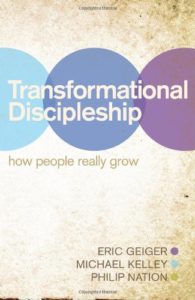 Brooks’ focus was on the decline in Christianity in the United States, the smaller share of Evangelicals in the U.S. electorate, and the recent Supreme Court decision supporting gay marriage. He took the opportunity to advocate a significant shift for social conservatives to make from the front lines of the current culture wars to offering collaborative service, social and spiritual capital in their cities and communities.
Brooks’ focus was on the decline in Christianity in the United States, the smaller share of Evangelicals in the U.S. electorate, and the recent Supreme Court decision supporting gay marriage. He took the opportunity to advocate a significant shift for social conservatives to make from the front lines of the current culture wars to offering collaborative service, social and spiritual capital in their cities and communities.As Americans, Christians are often conflicted when deeply held moral and ethical positions are overridden by elections and/or court decisions. However, being an American and being a Christian represent two very different identities. Recent decisions on public policies should help Christians understand their cultural context and live counter-culturally.
Brooks wrote, “Consider putting aside, in the current climate, the culture war oriented around the sexual revolution.” The culture war makes people, who should be known for profound love and a commitment to equality and justice, appear to be neither loving nor just.
He writes, “Social conservatives could be the people who help reweave the sinews of society. They already subscribe to a faith built on selfless love. They can serve as examples of commmitment. They are equipped with a vocabulary to distinguish right from wrong, what dignifies and what demeans. They already, but in private, tithe to the poor and nurture the lonely.” He could substitute “Evangelical Christians” for his use of the term “social conservatives.” However, it’s good that he does not, because many of us find our place on the political spectrum to be somewhere between conservatives and liberals, who have become so polemic that sensible public policy seems to get lost in the rhetoric.
Here’s where Christian leaders’ work in cities and David Brooks’ viewpoint dovetail. It’s when he writes, “The defining face of social conservativism could be this: Those are the people who go into underprivileged areas and form organizations to help nurture stable families. Those are the people who build community institutions in places where they are sparse. Those are the people who can help us think about how economic joblessness and spritutal poverty reinforce each other. Those are the people who converse with us about the transcendent in everyday life.” I would add, Those are the people who seek the peace and prosperity of their city and offer hope.
When we take an approach that is innovative and collaborative that focuses on “what people care about” in cities and communities, Christians will enter the public square and find they become valued partners. I’ve written a short e-book about how this is already taking place in a number of cities and to offer a method that will give many thousands of people an opportunity to engage in helping every city to become a good city; to move toward city transformation in ways that help repair the fabric of our communities and, as David Brooks writes, “…to serve as messengers of love, dignity, commitment, communion and grace.”
Free eBook: Multiply Volunteers and Resources
The ebook, Multiply Volunteers and Resources, is being offered as a valuable tool to engage leaders throughout your city or community in signiicant work that addresses causal issues, not just the symptoms. Click the button here or in the side bar to download your copy today.

 Leaders catalyze movements.
Leaders catalyze movements.